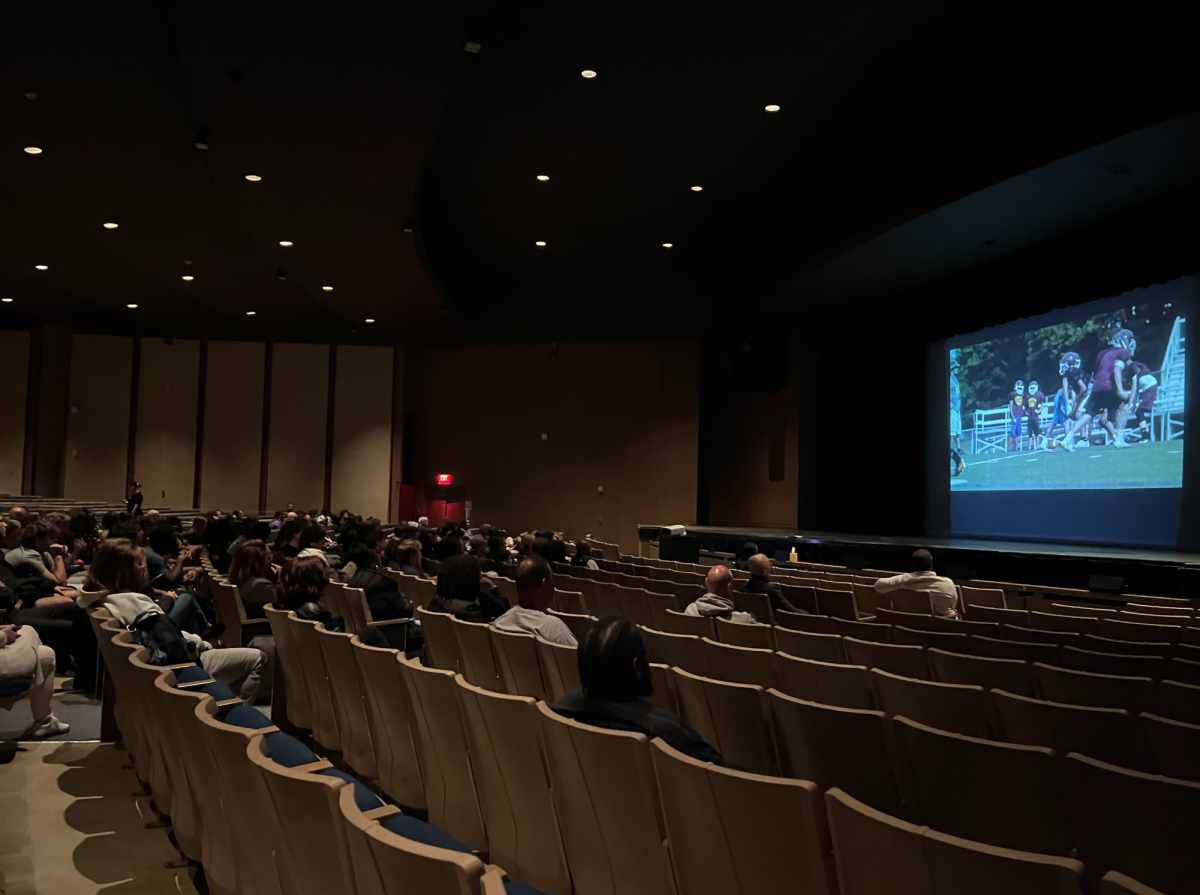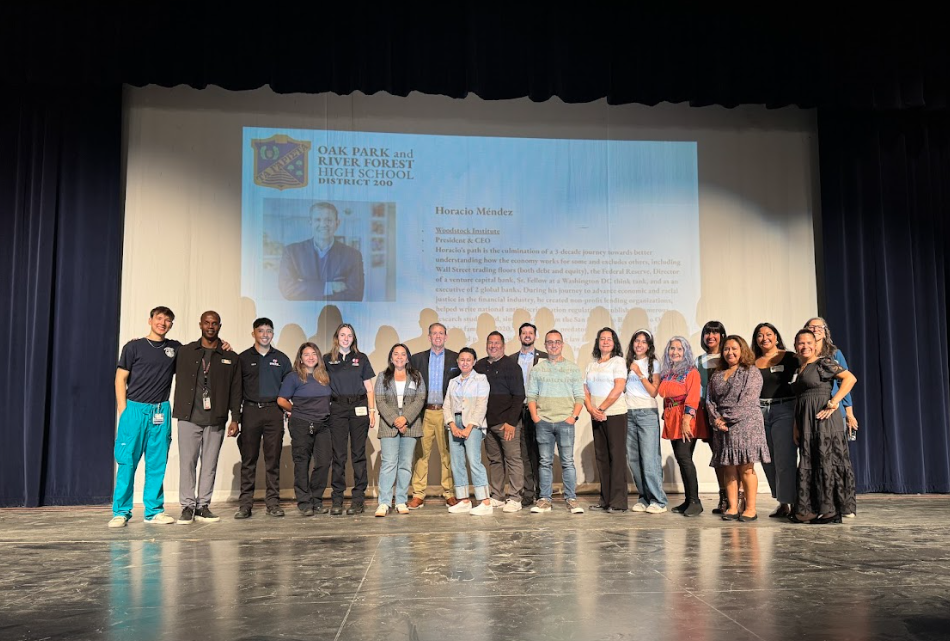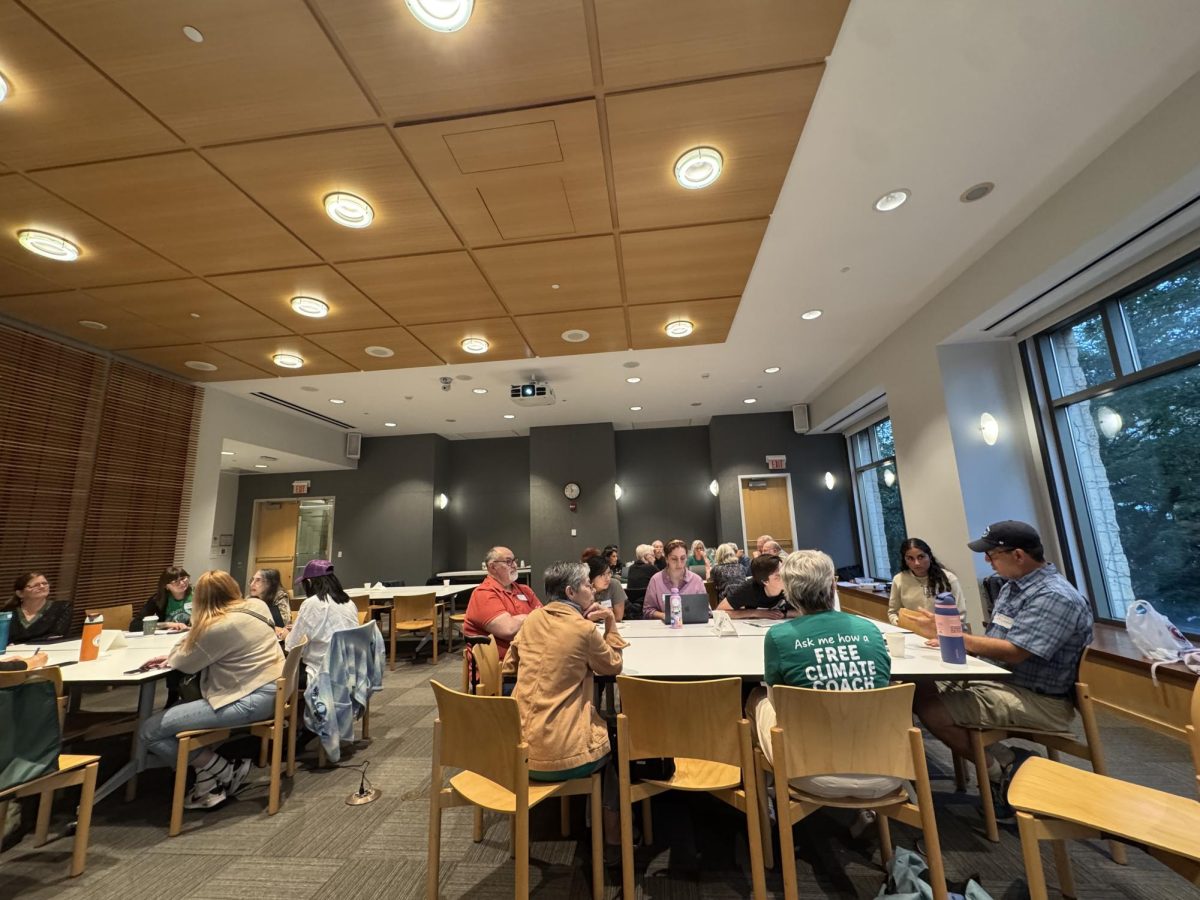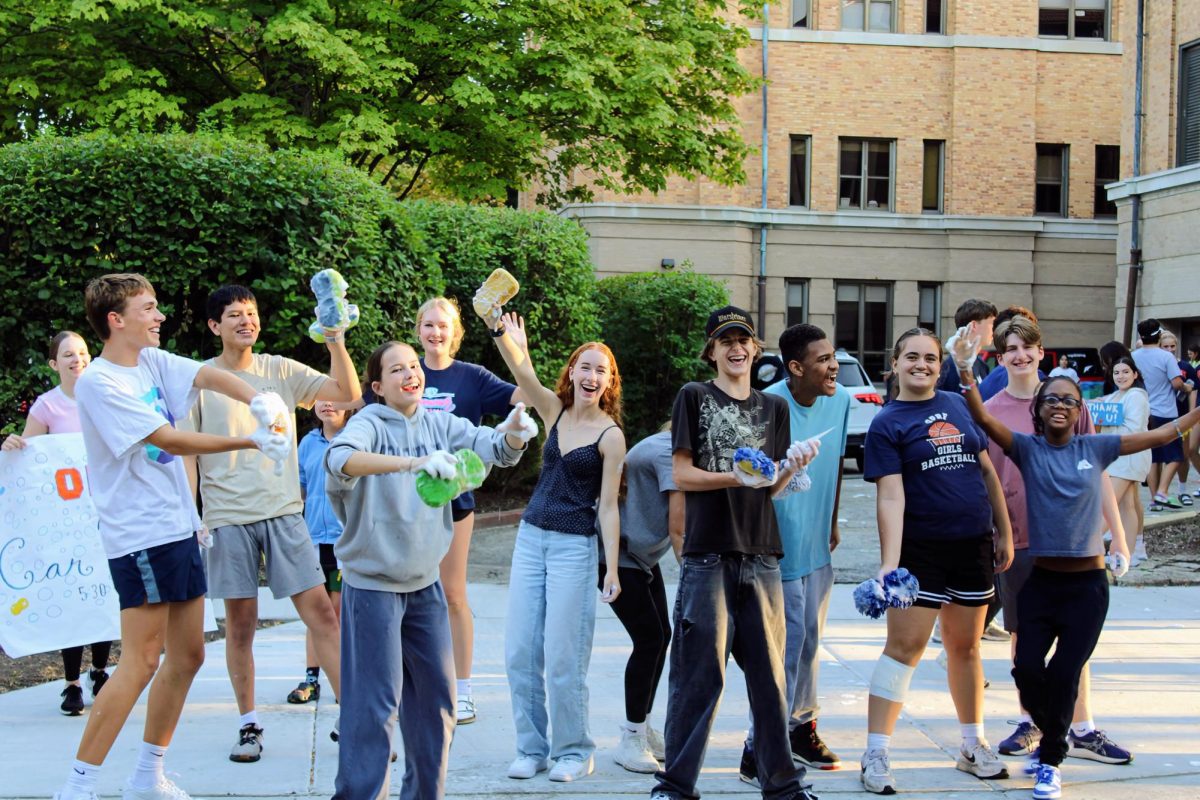Dozens of student athletes and families left the Oak Park and River Forest High School main auditorium with a new perspective of manhood after viewing a one-hour-long documentary, “Locker Room Talk.”
The media company TMI Project filmed “Locker Room Talk” this year in collaboration with the violence prevention organization A Call to Men and the film company Stockade Works. The documentary follows the football team at Kingston High School, where several male student athletes participated in a writing workshop to redefine masculinity. Led by their coach Jeramie Collins, students Javar, Malik, Reid, Kevin, Gabe, Matt, Eddie, Hayden, Chapman and several others explored who they were as men.
TMI Project encourages people to share their comprehensive and unique stories to challenge social injustice, overcome trauma and release silenced emotions. The nonprofit organization partnered with A Call to Men, a violence prevention organization that strives for gender equality by teaching young men about negative societal norms of manhood. They collaborated to help people recognize that domestic and sexual violence has roots in an unhealthy definition of manhood that teaches men that, according to A Call to Men, “women are the property of men, sexual objects and have less value than men.”
“If gender-based violence is going to end, we need you,” said Linda Carlson, a physical education and self-defense teacher at OPRF, at the documentary screening. During an interview beforehand, Carlson said, “I believe any way we can attack it, with a documentary, with a class here, with role models walking around this building is making a huge difference. Because to me, if one person feels empowered, the job is done.”
A Call to Men representatives Lina Juarbe Botella and Rickie Houston led the discussion before and after the documentary. Houston said the athletes of the boys cross country, football and wrestling teams who attended the screening are “the next generation of manhood.” To show the impact of stereotypes already, he asked the audience to finish the sentence: “Big boys don’t…,” and the audience immediately replied, “Cry.”
“Locker Room Talk” explores what manhood truly is. In the documentary, the Kingston High School football players are encouraged to write their stories to the fullest extent and present them to empower themselves and others. One young man resisted at first, saying, “I don’t have a story.” The thoughts and emotions were forcefully bottled until two people told the boys that it was OK to let it out.
Those two people were Tony Porter, CEO of A Call to Men, and Eva Tenuto, executive director of TMI Project. Porter said, “There are some aspects of manhood that we need to rename.”
Tenuto added, “There’s no wrong way to do this.”
Porter described a phenomenon coined the “man box” in which men are collectively taught to be tough, dominant and unemotional. Once the students understood the man box and how they had been “digesting trauma” for far too long, stories flowed out of them. The group sat in a circle and shared their stories one by one and were met with applause after each. The stories were about alcoholism, eating disorders, suicide, abuse and grief. The boys were visibly emotional and distressed.
The documentary also featured multiple professional athletes such as football players Mark Herzleich, Curtis Martin and Jonathan Stewart, who shared their stories with the boys. Herzleich described the loss of his masculinity through his cancer journey and the story of how he met his wife. Porter and Jeramie Collins also shared personal stories to inspire student athletes to permit and accept vulnerability.
As the young men continued writing and editing their stories, they prepared to present them on stage with an audience. One of the players described his experience, and said, “At first I didn’t like it. They made it easy. The Tony Porter things…helped me a lot. They helped me be a better person.”
The boys confidently presented their pieces on stage with a roar of applause following each one, and according to one student, “Me and my teammates have come together as one.” The Kingston High football team realized and acknowledged their commonalities. Their stories and emotions brought the boys closer together as a team and as a family.
After the screening ended, a Q&A began. The OPRF student athletes were tasked to recognize what part of the documentary resonated with them the most. Many students raised their hands and participated in a thoughtful and productive discussion. In addition, some students shared personal stories that expressed their relation to some players in the film. Rashad Singletary, a physical education and self-defense teacher, said, “You saw a lot of young men open up, really give a chance to like, ‘Man, I’ve been bottling all this up my entire life and I didn’t know I could let it out. I thought I was supposed to keep this in. I didn’t think this was a part of what I was supposed to have out.’ And so they start to flourish and see how good, better they feel about themselves and it opens up the relationships they have to be more authentic.”
Many of the boys in the audience may have had Singletary as their self-defense teacher sophomore year. During sophomore year, both female and male students take a self-defense class, and more specifically, boys participate in Step Back, a program where, as Singletary said, “We’re really just teaching students how to navigate [the man box] and understanding why people choose to do what they do so they can have a healthier understanding of the world around them”
Yonny Rafter, a student athlete on the boys varsity cross country team and participant in the Step Back program, reflected on the program and the “Locker Room Talk” film. In an interview, he expressed his enjoyment in both, saying that he left with the understanding that “It’s important to realize that being unique isn’t odd, and you don’t need to follow the typical gender norm. And that it’s okay to be yourself.”
Redefining masculinity is an ongoing issue and it requires attention and focus to find a solution. In a world where so many things are going wrong, we have a chance to redefine masculinity right. We need to expose each other and stay engaged. Keep the conversation going because, as Botella said, “Emotions have no gender.”








TMI Project • Nov 21, 2024 at 10:32 am
Thank you for showcasing our film!